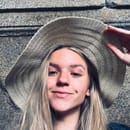With our intense climate crisis, hectic political atmosphere, and rising poverty levels, I find it difficult to remain hopeful in today’s world. Although there is always discussion about solutions to these problems, there never seems to be any tangible solutions. We always hear the excuses of “It costs too much money” or “It will take too long”. Yet at the Winter Innovation Summit hosted right here on the University of Utah’s campus, my hope in our world was boosted. I was able to witness social impact investors, policymakers, educators, venture capitalists, and many others come together to present tangible solutions to solving the ever many issues that face our world today. Not only did I feel like discussions were being prompted, but participants were not afraid to disagree with one another; all ideas were put onto the table. It was an absolutely stunning event that resulted in real social change and measurable impact.
The Winter Innovation Summit is organized and conducted by the Sorenson Impact Center, founded by Jim Sorenson in 2001. Sorenson hosted its first Winter Innovation Summit in 2014, improving both the event and its outreach ever since. This year, the winners of the Forbes Opportunity Zones competition in partnership with Sorenson Impact were announced at the Summit: Martin Muoto of SOLA Impact, Alex Flaschbart of Opportunity Alabama, Brett Wiler and John Persinger from Erie Downtown Development, and Stephanie Copeland from Four Points Funding. All of these wonderful individuals work in opportunity zones, which is an “economically distressed community where new investments are eligible for tax treatments”. Opportunity zones are designed to spark economic development and create new jobs for those in disheveled areas. For example, Martin Muoto of SOLA Impact worked with a single mom of three children and assisted her in getting approved for a house within three days. The woman told the story of how she had been homeless for three months after moving to Los Angeles, and how Martin and his team changed her life. “I just want to give my kids the best life,” she stated. It’s people like Martin who inspire me greatly.
I was also able to attend a deep dive at the Summit. This year, the Summit hosted 18 deep dives, spanning topics from urban renewal to innovation in higher education. I was able to attend a deep dive titled “Disrupting the Healthcare Delivery Paradigm with Digital Technology and Data-Driven Solutions: ThinkMD, A Field-Based Use Case.” The panel discussed how our healthcare system desperately needs fixing. After the industrial revolution, our healthcare system was created, so it mimicked the structure of an assembly line; we are breaking to get fixed. Instead, the panelists believed we should be focusing on preventative measures. I agree with the preventative approach; I believe we should be focusing on making people healthier overall (mentally, physically, socially) instead of keeping people a little bit sick for a short amount of time.
Overall, the conference was a total success. I am very blessed to be able to have attended the Summit, and participated in so many crucial conversations that will result in great social change. If you are interested in attending next year, make sure to follow Sorenson Impact Center on all social media so you can stay up to date with the Summit developments!
Twitter: Sorenson_impact
Instagram: Sorensonimpact
Facebook: Sorenson Impact




